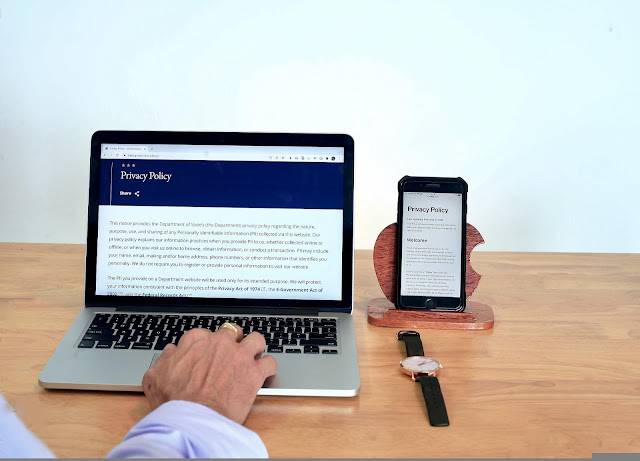The internet has become a significant resource for all kinds of people. It is a place for people to meet, interact and even buy goods and services. But then, it is also the primary medium for sharing sensitive adult content such as photos and videos that aren’t fit for children.
There also are lots of age-restricted goods and services getting sold online today. Using age restriction systems has become one of the best ways to protect kids from such content. With such tools, organizations that sell explicit content, products or services restrict access.
But they do not only use age verification tools to keep children away. They also use them to secure their data and prevent unauthorized access from third parties. This article will examine how you can use age verification to protect your data from people with malicious intentions.
Let’s get started with everything you should know about age verification and data safety.
Use of Personal Data: Learn About the Compliance Criteria
As mentioned before, there’s a need to secure personal data from theft. Age verification tools require data to determine whether a user is of the required age before allowing access. But then, there are data protection laws that aim to prevent companies’ misuse of user data.
For instance, there is the Commission nationale de l’informatique et des libertés. This is the data protection authority of France. Its primary role is ensuring that there are data protection laws to help secure user data. Once you access a website, the data you exchange remains safe.
The CNIL has put in place strict measures to ensure compliance. Some companies that provide age-restricted products or services find it difficult to comply. This is because of how tough these laws are, especially on the validity of self-declared data and the principle of data minimization.
This institution also works in line with other larger data protection institutions. For instance, there’s the European Data Protection Board. It is another institution that works to make the internet a better place for data sharing and a safe space for minors.
The European Data Protection Board has various guidelines for data handlers. One of them is that service providers must verify user age before allowing access. It also states that they have the right and obligation to determine if there’s parental consent for minors to access services.
The CNIL draws inspiration from such institutions when setting laws for companies. It sets rules that align with the more prominent institutions to regulate the use of an age verification system.
Here are some guidelines that CNIL has set for every company that uses an age verification system:
Use of Proof-Of-Age Systems
Sometimes the challenge is the designs of systems used by service providers. It can be tricky to reconcile data protection principles. This is especially if the age control mechanism you use involves prior identification. This makes it risky, mainly because it will work with third parties.
There are things that such third parties must do to be compliant. One is incorporating a double anonymity mechanism. This ensures that the third party doesn’t identify the application or website that is at stake. It also prevents sharing of sensitive user data to the website or application.
Personal Data Collection
Service providers usually ask for data from users to help with verification. Well, this method best suits their efforts of verifying age before allowing access. But it can cause a potential security threat to users’ data, especially when it gets collected through third-party service providers.
These third-party firms can compromise databases in case of disputes. Thus, the law seeks to protect users from these potential risks. It doesn’t allow service providers to gather data directly from their customers. This ensures no chance of linking any data to a specific user.
Data Minimization Principle
There is a need to keep the data that an organization can collect at the minimum. This is what the laws governing age verification systems are doing. For instance, they discourage service providers from collecting official identification documents to help mitigate identity theft risks.
They also discourage age verification system providers from using specific tools. For instance, using a system that can leverage user data to estimate age is illegal. Last but not least, the law is against collecting and using biometric data to verify a user’s age or identity.
Those are some of the solutions used to protect users and their data. It can be tricky to ensure data safety if companies that use age verification systems don’t get regulated. As a user, you need assurance that your data will remain safe as it’ll get used for verification.
Where Do The Policies Governing Age Verification Systems Leave Data Users?
There’s no doubt that age verification is a complex matter. It requires proper regulation to ensure all the parties involved get satisfied with the processes involved. The systems that have been in the market have failed users in various ways and even exposed them to threats.
For instance, they sometimes collect more data than they need. Some ask for facial recognition, which exposes the users’ identities. Also, it is easy to circumvent some of them. This is mainly those that use email verification or require users to self-declare their data before getting verified.
Bottomline: Data Protection is Possible on Age Verification Systems
Data protection is one of the significant security tasks that organizations have. Preventing data from malicious persons isn’t easy, making it critical to leverage technology. And as said before, age verification software is among the best tech organizations can use to secure their networks.
This software will prevent kids from accessing age-restricted content. It can also provide an extra security layer to prevent bots from your networks. Internet users also benefit significantly from age verification systems. This is because these systems comply with data protection laws.
That means one can share data with organizations that use age verification systems without worrying about data loss. Also, remember that age verification laws require that organizations make data minimization paramount. All these are measures meant to protect your data.


